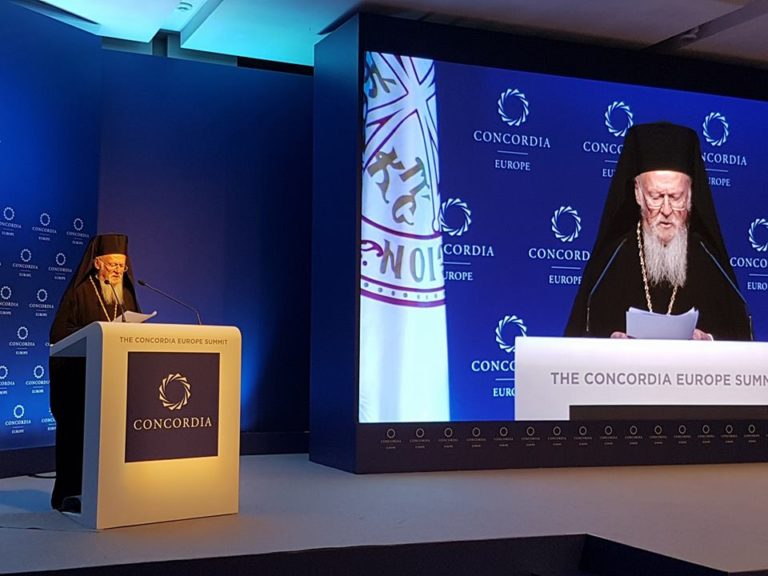
His All-Holiness Ecumenical Patriarch Bartholomew participated in the Concordia Europe Summit which took place in Athens (Greece) on 6-7 June 2017. Concordia is a registered nonprofit organization that enables public-private partnerships to create a more prosperous and sustainable future. As equal parts convener, campaigner, and idea incubator, Concordia is creating a new model for how a nonpartisan, nonprofit can have a global impact. The Concordia Europe Summit takes place at a pivotal time for the continent, following significant shifts in regional leadership that will continue throughout 2017. As the popular vote has become far less predictable than ever before, elections in Italy, France, Germany, and elsewhere are affecting not only on citizen populations, but also universal human rights, global markets, migrant populations, and regional investment climates. Concordia believes that public-private partnerships (P3s) have great potential for impact in Europe as it works to preserve a modern-day union, quell a burgeoning refugee crisis, and reignite regional economic growth while remaining on the path to achieving the SDGs by 2030. By convening regional leadership to address these challenges and formulate practical solutions, Concordia is providing a platform for the exchange of ideas and brokering new relationships across the public, private, and nonprofit sectors.
In his address, Ecumenical Patriarch Bartholomew focused on migration as challenging European identity. He reminded that “for Christian Churches, the migration and refugee crisis challenges our central biblical and ecclesial principles. Hospitality for the foreigner is at the core of the life and the pastoral mission of the Church”. He referred to his visit last year to the island of Lesvos with his brothers Pope Francis of Rome and Archbishop Ieronymos of Athens and All Greece to meet with the refugees. He underlines that the migration crisis challenges the European identity at its deepest core, stating that “it is unacceptable that some Europeans, who praise human rights and who wish to appear as defenders of a “Christian Europe”, at the same time employ hard language against migrants and refugees, and defend closed European borders”. He also mentioned the protection of environment for which “Christianity and humanitarian movements come together and go hand in hand”. He called to “transform the “threat of otherness” into the opportunity to foster a culture of solidarity and inclusion”. According to the Ecumenical Patriarch, “the world expects the common witness of people of faith. It is our duty to promote interreligious dialogue. Communication and openness liberate religions from introversion. The mutual trust between religions is a force supporting universal peace. Antagonism and mistrust are diminishing the capacity of religions to contribute to the culture of solidarity, which is the condition sine qua non for the just solution of the migration problem”.